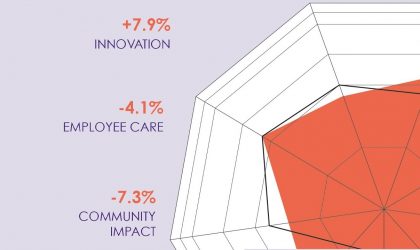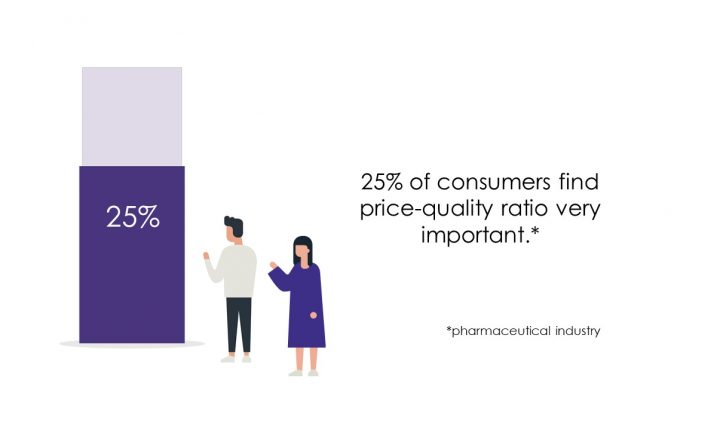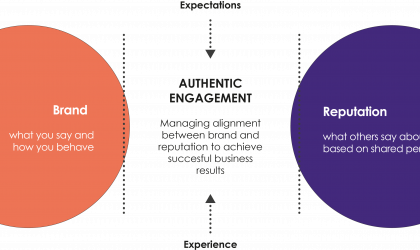
Consumers find Dutch food and agribusinesses more innovative than expected
Consumers’ expectations are exceeded when it comes to the innovative strength of Dutch food and agribusinesses. Discover the results of our Authenticity Gap research:
April 20, 2022

At the top of Dutch consumers expectations are reliable products with a good price-quality ratio and better care for society and climate.
The healthcare sector is failing to meet key consumer expectations. Innovation was previously the key reputation factor for the sector, but no longer is. Despite lower consumer expectations in this area, they are still not being met. Consumers consider offering reliable products with good value for money to be the most important driver. What a company does for society and the climate is also increasing in importance. This is evident from the Authenticity Gap research by Omnicom PR Group (OPRG) among 1000 well-informed consumers in the Netherlands. The research measures the gap between consumers’ expectations and actual experiences of companies in ten sectors on nine so-called reputation drivers.
Business Director Healthcare Daniëlle Friskes at OPRG explains, “COVID-19 and its aftermath has given healthcare a face. The stage now given to the sector can be used further to present new technologies and R&D developments to the general public. Especially at a time when companies are expected to contribute to human health and the environment, it is important that the healthcare sector also communicates openly and honestly to maintain consumer confidence in the sector.”
In the pharmaceutical industry, offering reliable medicines with a good price-quality ratio is seen by consumers as by far the most important (25%). This has almost tripled compared to 2018 (8.7%). In 2018, “innovation” and “caring for employees” were at the top of the list. However, expectations in the area of ‘price-quality’ were not met in 2021 and a large difference can be seen between expectations and experiences. It is notable that in 2018 the gap between expectations and actual experiences of the sector was smaller. In 2021, with the exception of innovation, larger differences are visible.
Dutch people think it is most important (29%) that biotech companies take care of society and climate (sustainability). This is twice as much as in 2018 (13.4%). However, even these high expectations are not being met by the sector. This is therefore where a negative gap lies. In 2018, consumers also considered sustainability important, but care for human resources and innovation were deemed more important.
“Biotech is known for its innovative nature. And that is precisely why consumer expectations are high,” Friskes said. “This sector is ideally suited to contribute to the green deal for healthcare, reducing CO₂ emissions and reducing drug residues in surface and groundwater.”
Consumers primarily expect medical device suppliers to deliver reliable products with a good price-quality ratio. However, in reality they do not experience this. The same applies to expectations regarding innovation. Although these innovation expectations have dropped significantly (from 23.1% in 2018 to 15% in 2021) and are therefore no longer the most important reputation driver, they are still not being met.
Would you like to know more about the Authenticity Gap study? Please contact:
Bibi Bemelmans, Senior Account Lead
[email protected]

Consumers’ expectations are exceeded when it comes to the innovative strength of Dutch food and agribusinesses. Discover the results of our Authenticity Gap research:

80 major brands in the Netherlands are failing to meet key consumer expectations. To remain relevant, brands need to show more of what they actually do for our society and the climate. This is evident according to Omnicom PR Group’s Authenticity Gap research presented today.